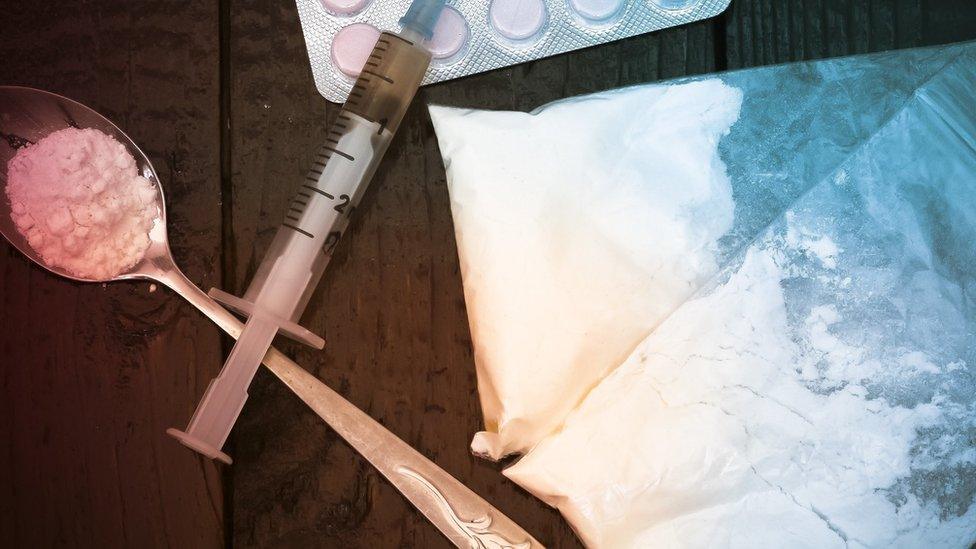Sefton children, under six, 'exposed to drugs for months'
- Published

Tests suggested the children had been exposed to drugs over the six months before police raised concerns
Three children aged under six were exposed to "significant levels" of heroin and cocaine for months, despite having been identified as vulnerable.
A serious case review, external in Merseyside found twin girls aged two and their brother, five, suffered severe neglect after failures by professionals.
They were taken into care after police found the twins "drowsy and incoherent" at their Sefton home in August 2017.
Local social care and health bodies said they "fully accept" the findings.
Social workers were alerted after police officers attending the house found the home smelled of burned heroin, with drugs paraphernalia upstairs and no food in the kitchen.
A review was commissioned by Sefton's multi-agency Local Safeguarding Children Board (LSCB) which draws together organisations including social services, GP commissioning groups, hospitals, police and health visitors.
"Hair-strand testing undertaken during subsequent care proceedings revealed that, over the previous six months, [the three children] had been exposed to significant levels of drugs; including cocaine, heroin and cannabis," the report said.
The children, referred to as Martha, Mary and Ben, "were found to have suffered severe neglect, despite their being known to services as vulnerable children", it added.
The report also said that, in 2014, the mother had discharged herself from hospital four hours after giving birth prematurely to the twins, after less than 30 weeks gestation.
The social worker concluded a month after the birth there were no child protection issues and closed the case.
In April 2016, the children's great uncle reported taking heroin and crack cocaine to the local substance misuse service but a risk assessment did not reveal he was living with children.
'Lessons learned'
The review cited a number of missed indicators of potential neglect:
failed visits and a lack of continuity between changing health visitors
missed medical and neonatal follow-up appointments
concerns over Martha's weak growth
Ben not attending nursery
the mother's failure to take Martha for treatment to a dental abscess for three weeks, resulting in the removal of 14 baby teeth
The report made recommendations including the need for extra support to aid early identification of neglect and the impact of drug misuse, and improvements to the way information is shared between police, children's social care teams, teachers and the NHS.
Paula St Aubyn, independent chair of Sefton LSCB said lessons would be learned about providing more effective multi-agency support to young children exposed to drug misuse and neglect.
"The findings identified and the many important lessons to be learned will be implemented and shared within each agency."